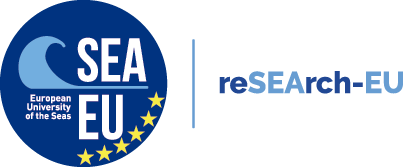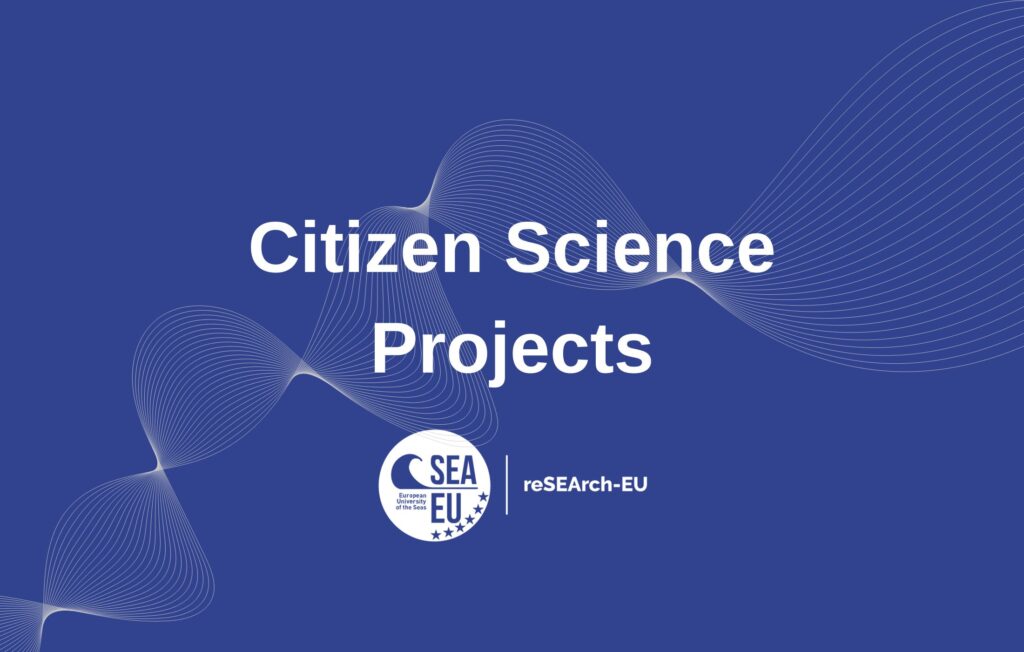Check our repository of Citizen Science and Open Research projects carried out within the framework of the ReSEArch EU Project and the Alliance universities.
ANR MYNION: MYcotoxiN migratION in moldy foods and exposure at the consumer level: one step further to determine consumer habits, provide safe consumer recommendations and limit food losses

Food losses are a major worldwide challenge and are partly due to mold spoilage at the consumer level in industrialized countries.
One possible way to reduce food waste due to moldy foods would be to avoid a too conservative approach that leads to discarding entire or large portions of a product when fungal growth is observed.
However, there is also a food safety risk as many fungal species produce mycotoxin(s) that can potentially migrate into foods, this health risk needs to be taken into account to establish consumer recommendations.
The project includes 500 French consumers to collect 500 moldy foods for the MYNION project. Project also include another panel of 1500 French consumers to participate to a survey to better understand consumer habits.
We have analyzed over 200 moldy foods sent by French consumers and here are some photos of them below (from diverse fruits and vegetables, nuts, dairy products; jams, bread…).
We have isolated many Penicillium spp., Aspergillus spp., Cladosporium spp., Fusarium spp., Alternaria spp., Botrytis spp., Colletotrichum spp.,…







MYNION is a collaborative research project (PRC) gathering 3 academic laboratories, internationally recognized in their respective fields of research (food mycology, secondary metabolites and mycotoxins, food safety, consumer behavior, toxicology) and with complementary skills and in collaboration with experts in risk assessment from a public institute.
The project will thus use a participative consumer panel strategy to determine consumer behaviors towards moldy foods, collect spoiled foods from their households and identify mycotoxigenic molds. The collection phase is still in progress until the end of the year and you can find all the information on the internet site to participate.
We include 500 French consumers to collect 500 moldy foods for the MYNION project and also another panel of 1500 French consumers to participate in a survey to better understand consumer habits.
Here is another example of research carried out within the framework of the ReSEArch EU Project Alliance projects and the universities of the Alliance.
We hope you like to see its relevance and application to the lives of all citizens.
Do you want to participate as a citizen scientist to MYNION?
There is still time to send us a moldy food from your household and answer our survey, just follow the link https://nouveau.univ-brest.fr/projet-anr-mynion/fr/page/je-participe
Any questions or collaboration opportunities? Please contact monika.coton@univ-brest.fr
New forms of Nimesulide – A non-steroidal anti-inflammatory drug

Nimesulide is a popular anti-inflammatory and analgesic drug used in dozens of countries worldwide, available in pharmacies by prescription.
Thanks to the development of new forms of the active substance found in the drug, its solubility has been significantly improved, making it more easily absorbed by the body.
Part of the development work on nimesulide was funded by the Innovation Incubator 4.0 project, the implementation of which is coordinated by the UG Technology Transfer Centre.
The invention – new forms of Nimesulide, a non-steroidal anti-inflammatory drug- was worked on by scientists from the Department of Physical Chemistry, Faculty of Chemistry, University of Gdańsk – mgr inż. Małgorzata Rybczyńska, under the supervision of dr hab. Artur Sikorski, prof. UG was among the final 20 discoveries in the 10th edition of the ‘Eureka! DGP – we discover Polish inventions’.
We hope you like to see its relevance and application to the lives of all citizens.
More information https://ug.edu.pl/news/en/

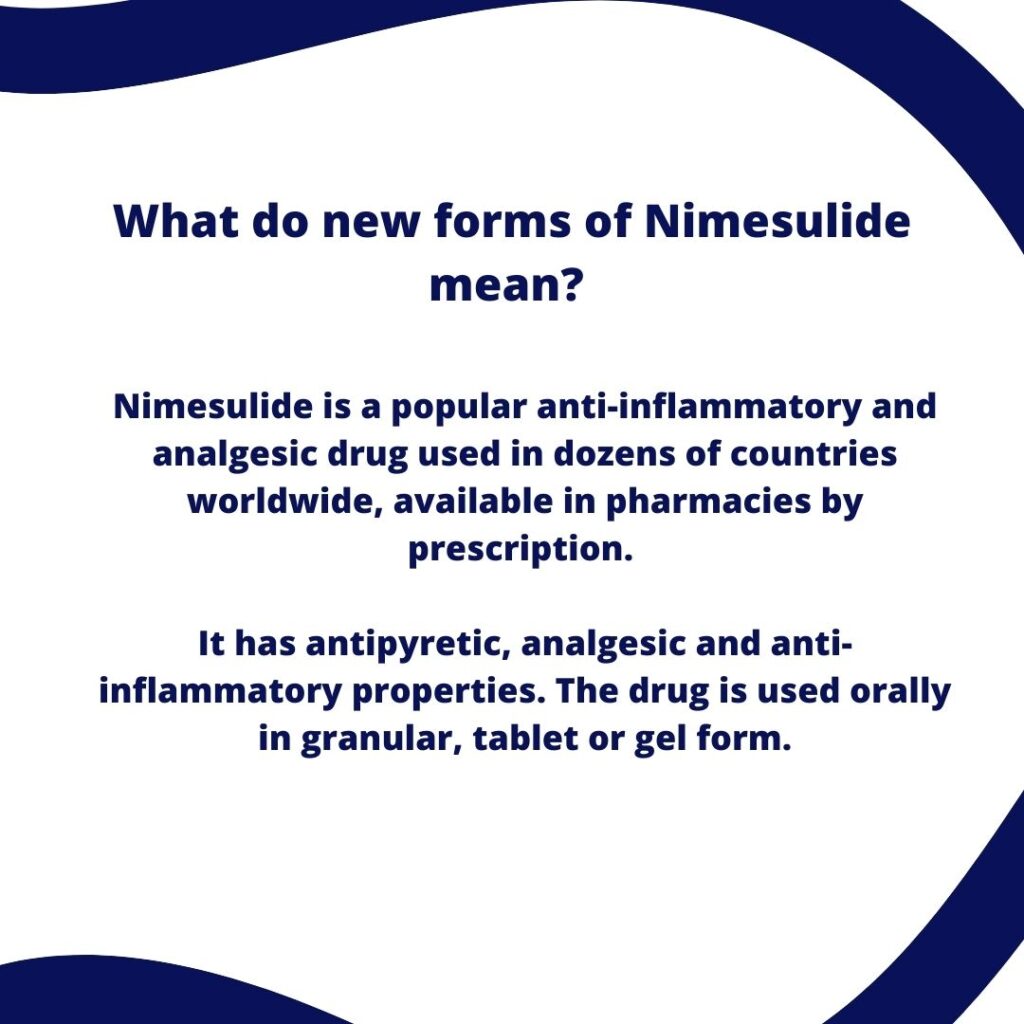
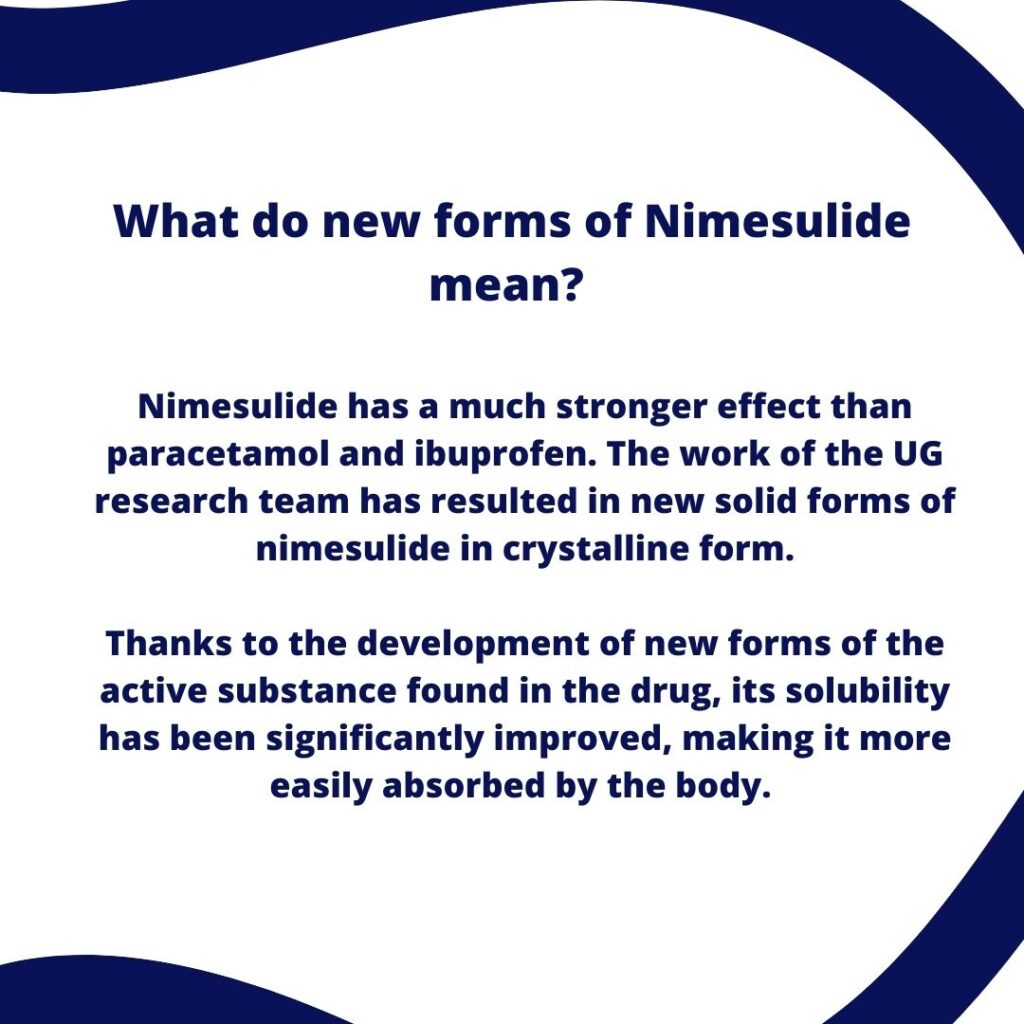
Innovation Sociale et Technologie pour une Meilleure Employabilité des Femmes Tunisiennes (INSAF-Fem)
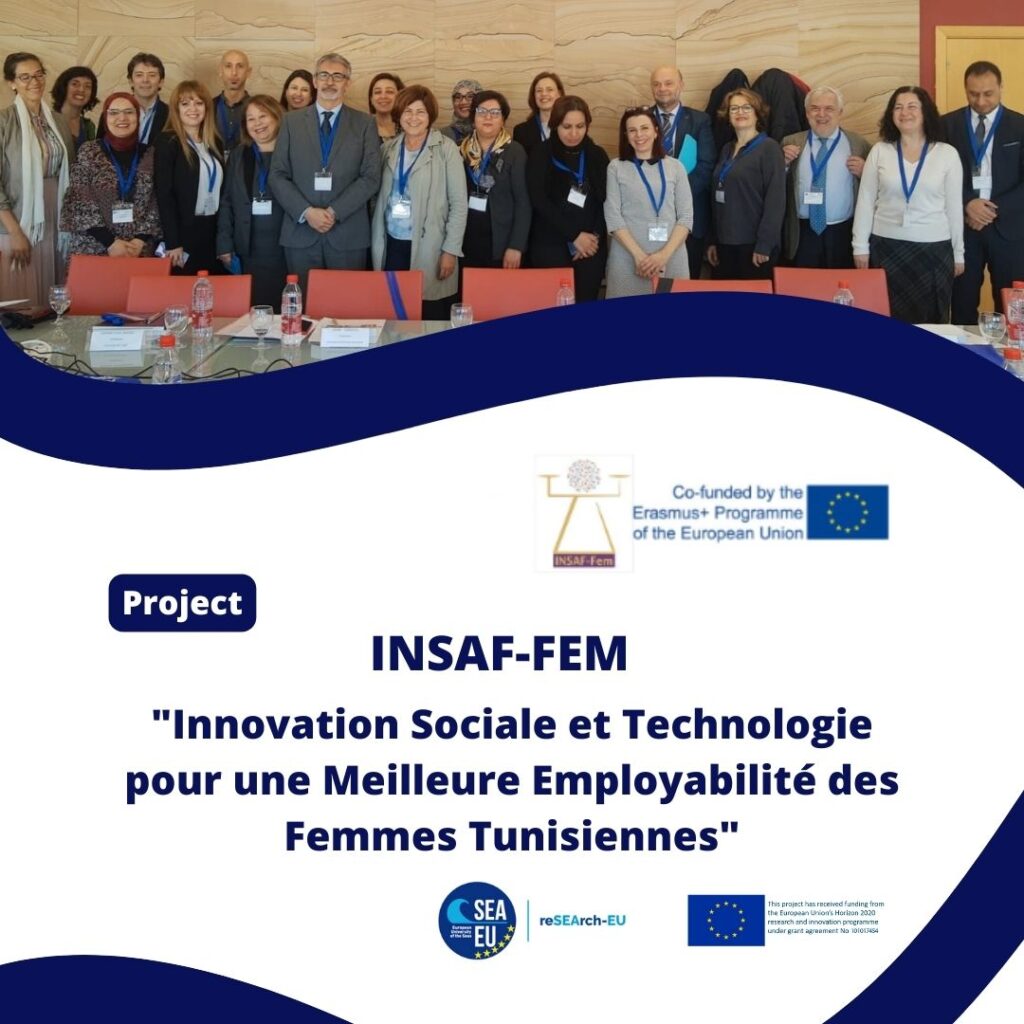
INSAF-Fem project is funded by the European Commission in the framework of the Erasmus+ KA2- Capacity Building in the field of Higher Education programme in order to to improve the #employability of #Tunisian #women through transversal training in ICT, #entrepreneurship and social innovation, while contributing to the strengthening of local #development.
The project is coordinated by the University of Cádiz – @univuca and consists of a consortium of seven universities. European partners include the Università degli Studi di Napoli “Parthenope” (Italy), also a partner of the SEA EU Alliance – @seaeualliance, the University of Galatasaray (Turkey) and four Tunisian universities: Sfax, Monastir, Kairouan and Gabès. Several associations such as the Association Féminine pour la protection de la Famille and the Union Nationale de la Femme Tunisienne de Sfax, as well as the Ministère de la Femme, de la Famille, de l’Enfance et des Personnes Agées are also involved.
In this post you have another example of a international project within the framework of SEA EU project.
More information about this project is available in http://www.insaf-fem.tn/






CYCLE EU Project: Bicycle as a vector of ecological transition in European universities

This project aims to study the mobility habits of students and staff in different European universities
Firstly, the statistical study carried out in Brest revealed the obstacles and incentives to cycling among students.
The main disincentives are the weather, discomfort after the effort and the lack of safety on the road and at the destination.
On the contrary, secure lockers and shelters, addressing the need for comfort after the effort and safety once at the University, can encourage cycling.
The study was also put into the context of another European country, in this case Malta.
Cycling among Maltese students, as well as among the Maltese population in general, is very unpopular due to a lack of infrastructure and cycling culture. The students and university staff we interviewed expressed their dismay at this, but we felt that the benefits of cycling were far greater for them than the island’s uninspiring cycling environment. This makes us optimistic that cycling can be developed in Malta or in other countries/regions where the infrastructure is currently insufficient.
These results are presented in detail in the internship report of Lino De Barros, Sustainable Mobility Research Intern for the Cycle-Eu 2022 project.
This project was carried out in conjunction with the #UBO Ecomobility Association, whose project was presented at a seminar in Malta. A local bicycle association was also present at the seminar. The actions of the University of Maltese in favour of cycling were inspiring for the Ecomobility Association, which was able to discuss with the UBO presidency the development of bicycle services, in particular the study of the GTP (Green Travel Plan) of the University of Malta (Um) on site.
More information https://fabmobzh.hypotheses.org/category/cycle-eu

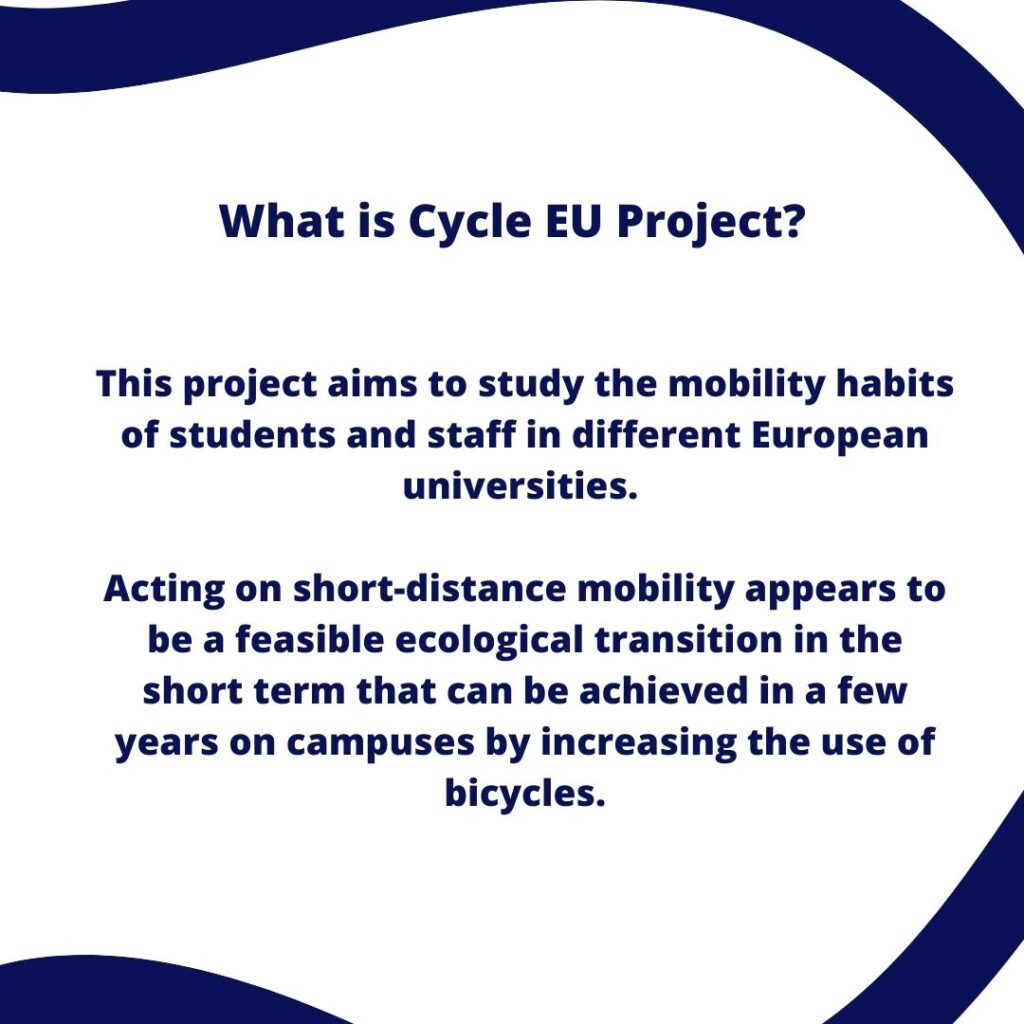
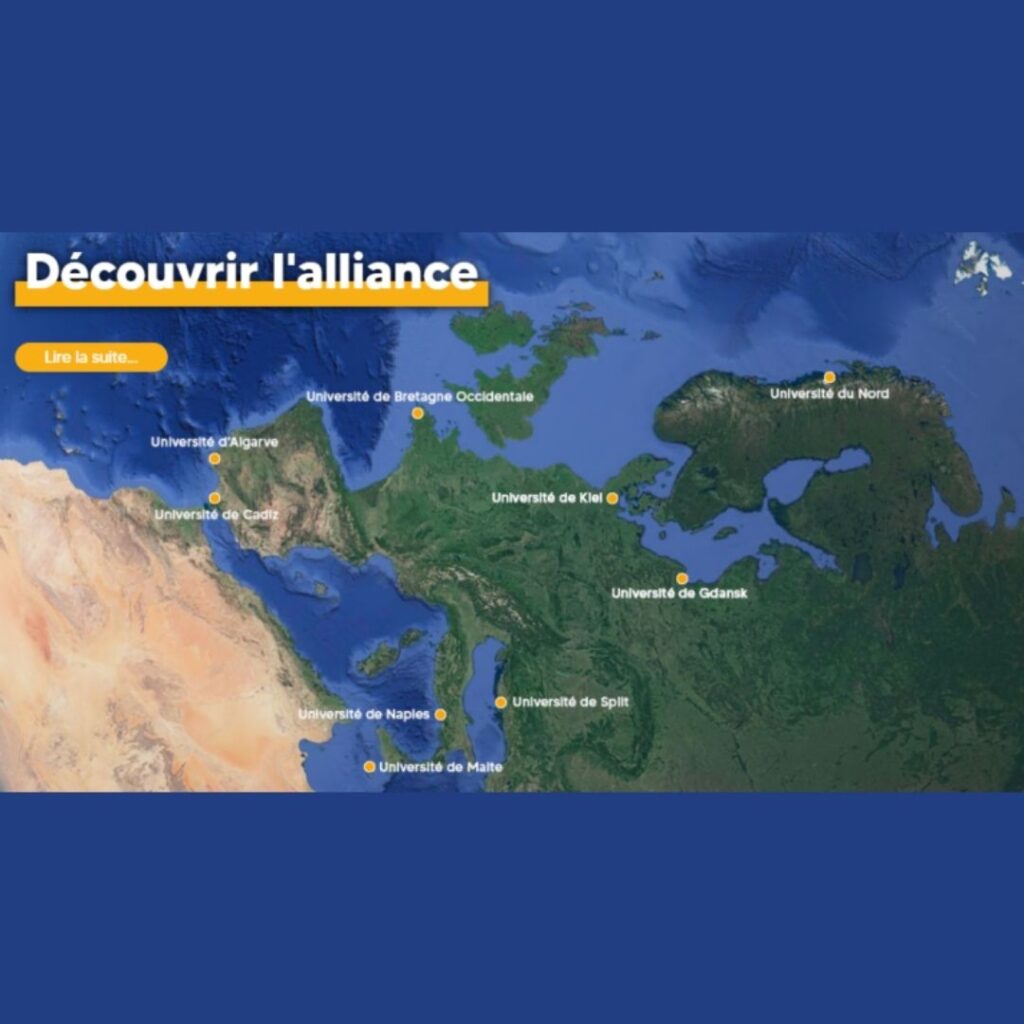

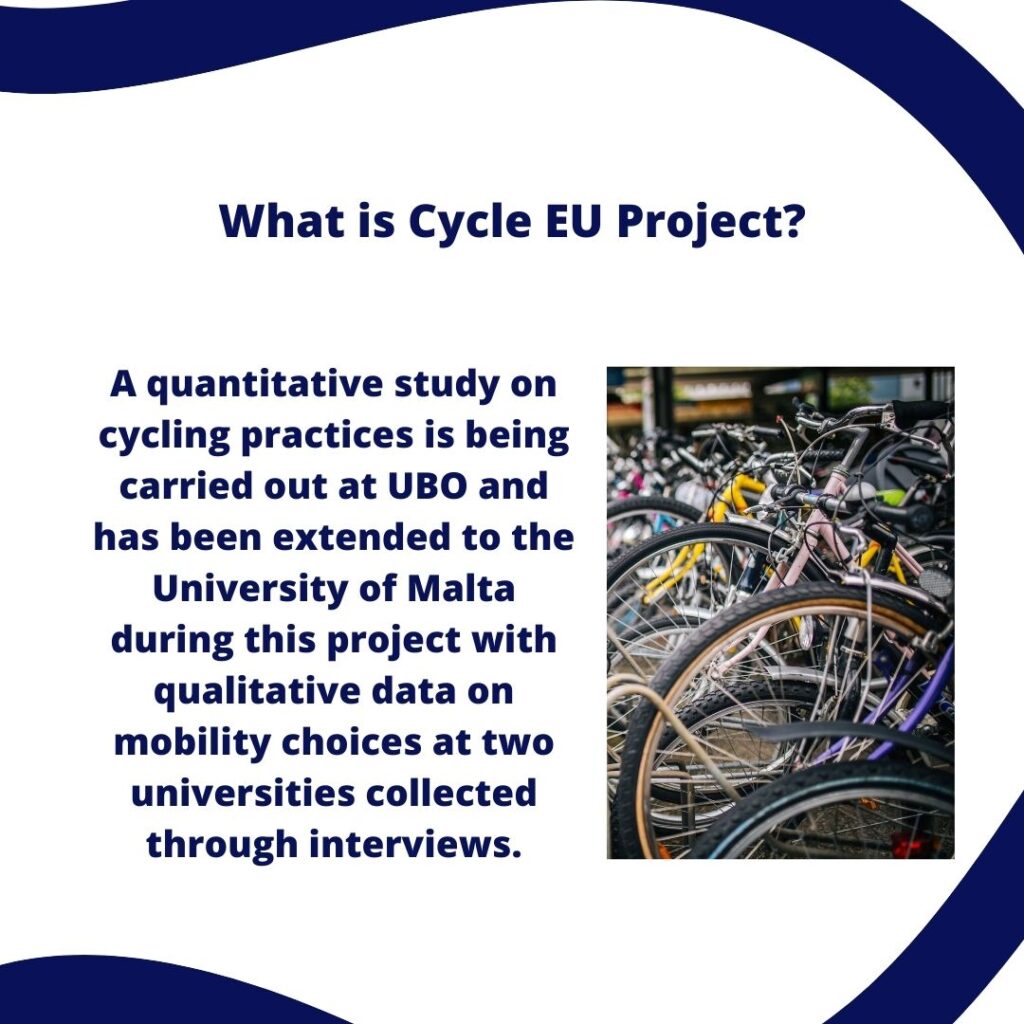

The poems of the local neolatin poet Caspar Schütz

Following the guidelines for Open Science Ambassadors in the ReSEArch-EU project Dr Jacek Pokrzywnicki (UG, Classical Philology Division) in collaboration with five students, who are about to complete their degree in Classics, has created an open research data set comprising some poems by a local neo-Latin poet Caspar Schütz (b. 1540-d. 1594).
More information about this projecti is available in https://repod.icm.edu.pl/dataset.xhtml?persistentId=doi:10.18150/I2EHKX

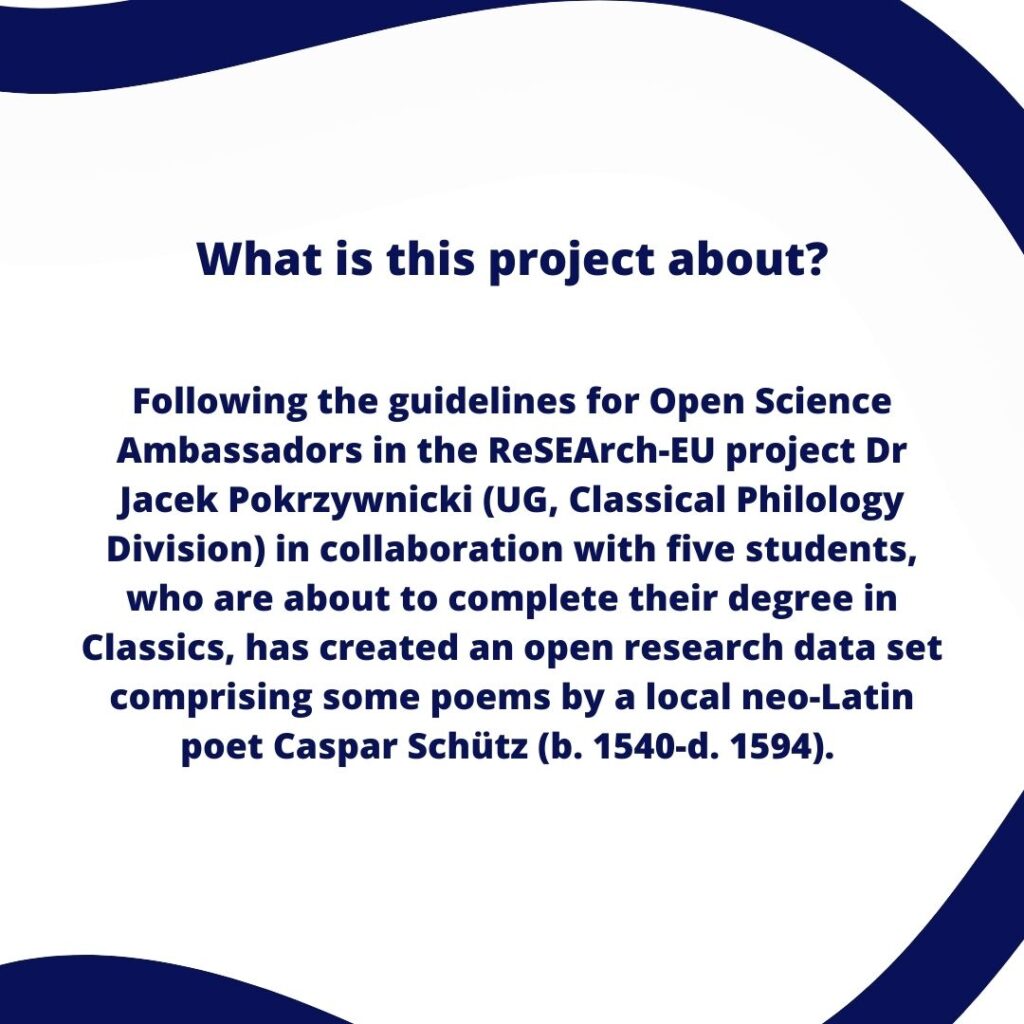
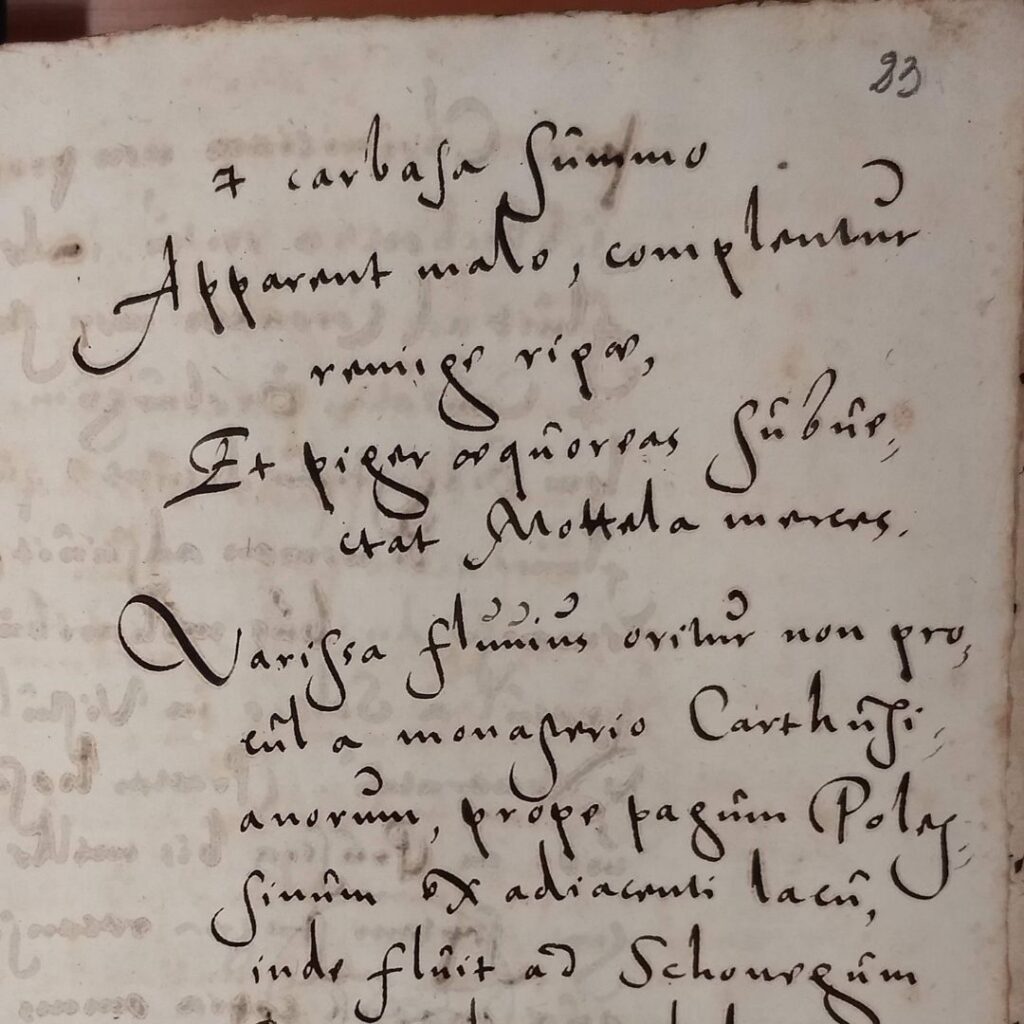


Ocean Census – Discover Marine Species – Discover LIFE

Did you know that life in the ocean has been evolving for 4 billion years, three times longer than it has on land?
Ocean Census is an Open Science initiative that aims to discover 100,000 new marine species in 10 years.
In this post you have another example of citizen science process with international repercussion within the framework of ReSEArcEU project.
More information about this projecti is available in oceancensus.org
Photo by Francesco Ungaro on Unsplash


“Blue Nights” project – The impact of artificial lighting

The “Blue Nights” project is an exploratory project that is part of the Noz Breizh University Chair and funded by the SEA-EU Alliance (2022-2023). We are interested in the impact of artificial lighting in terms of pollution on biodiversity, more precisely in tourist areas: Brittany (France), Cadiz (Spain) and Malta.
The links of our project with #OpenScience have recently arisen, as we are in the process of setting up the methodology of work in our three fields of study, including collecting the data, analyzing it and making it available as much as possible in Open Data. On these topics we have requested the help of the services dedicated to these topics at the University of Cádiz, as a first step.
Regarding the #participatoryscience, we intend to integrate it in the continuation of the project because it is essential in the #awareness of our fellow citizens on the urgency to act to limit the #impact of #LightPollution on #biodiversity in #CoastalAreas with #tourist vocation.
Photo: Bay of Cadiz (photo credit: Phillippe Deverchère)








COAST GUARDS PROJECT – Become a beach scientist and help us preserve beaches

This project is developed within the University of Cádiz in which citizen participation is essential to achieve results for the project.
Specifically, citizen can download the free App Centinelas de la Costa, create their account and make reports of beach state while they enjoy it
Here you have another example that we are going to bring you within the ReSEArch EU project so that you can see different ways of doing citizen science in projects with international repercussions.
The Principal Researcher of the project are: Laura del Río, Javier Benavente @javitopin and Theocharis Plomaritis.









“Apadrina tu playa” PROJECT – Citizen Science as an Educational Tool
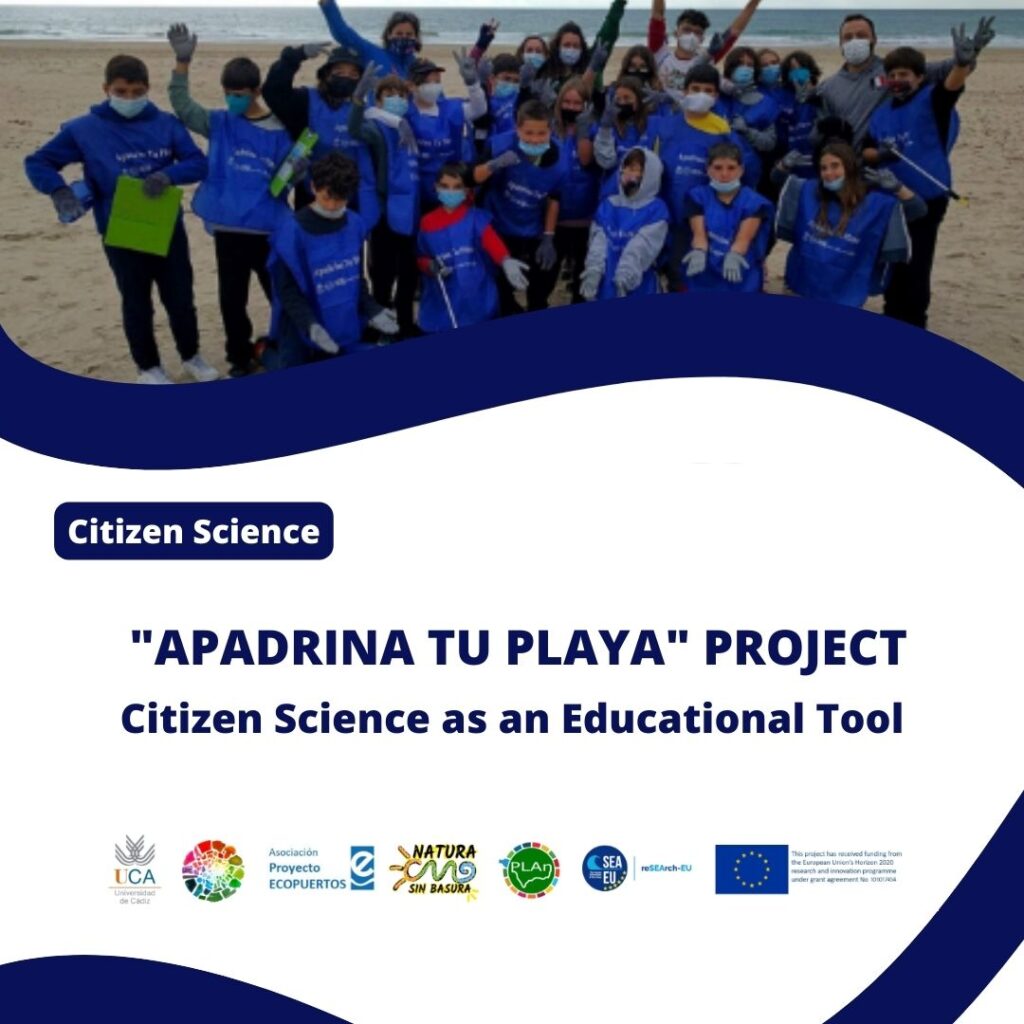
This project is developed within the University of Cádiz. The project aims to involve the educational centers of the Bay of Cádiz (Spain) in the problem of marine litter and plastic pollution in the seas, using the sponsorship of a beach in which citizen participation is essential to achieve results for the project.








RE-WIRING Project – Realising Girls’ and Women’s Inclusion, Representation and Empowerment
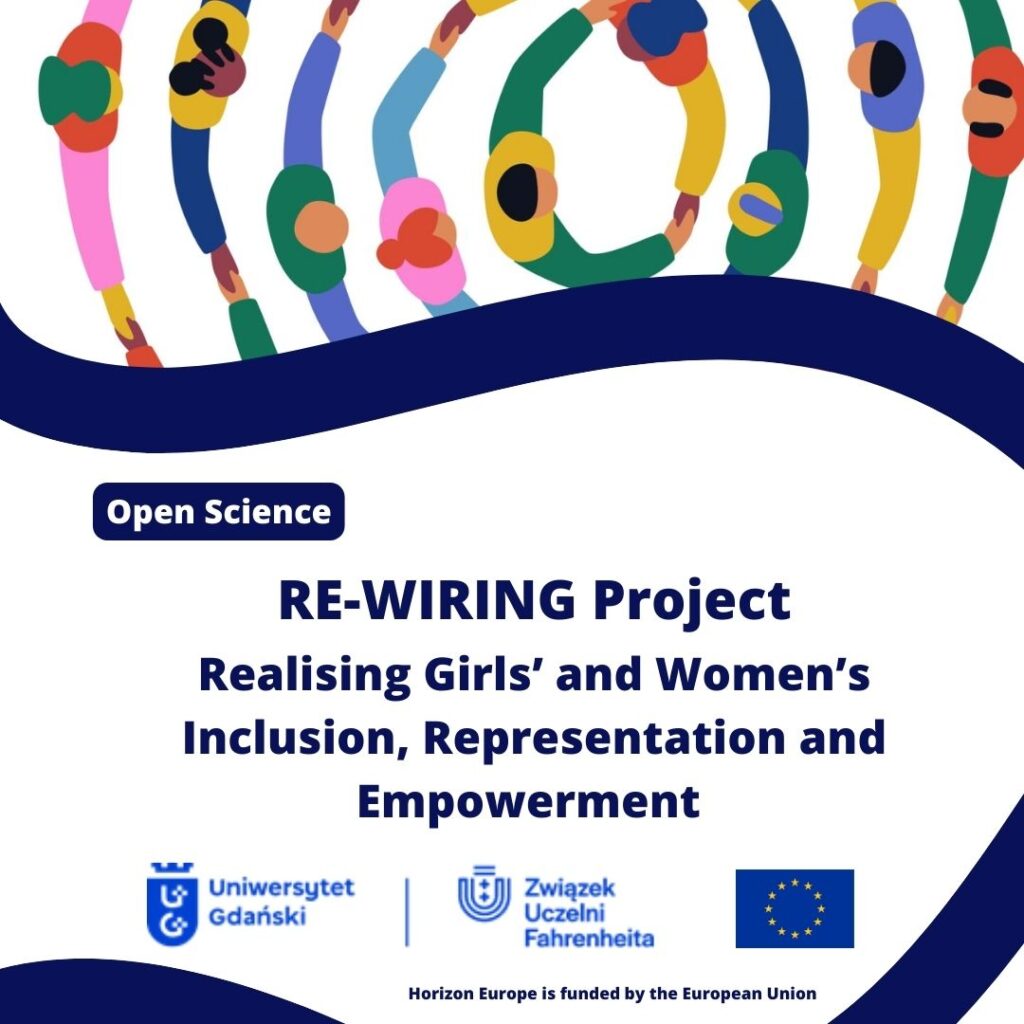
The University of Gdańsk (Poland) is part of this project funded by Horizon Europe.
RE WIRING will involve EU stakeholders (OECD, EEGE representatives for examples) to disseminate project results to wider public.
More information about this projecti is available in this link: https://www.uu.nl/en/news/horizon-europe-funding-for-transformative-research-project-re-wiring








Understanding “Transdisciplinary Marine Research“

Transdisciplinary research is a growing field in academia, yet, there still is no uniform definition and further studies should be performed in this relevant topic.
If you are interesting in understanding transdisciplinary and go deeply here you have further reading (open access):
🔹“The multifaceted picture of transdisciplinarity in marine research” is available open access: https://library.oapen.org/handle/20.500.12657/60256
🔹Grünhagen, C., Schwermer, H., Wagner-Ahlfs, C., Voss, R., Gross, F., & Riekhof, M.-C. (2022). The multifaceted picture of transdisciplinarity in marine research. In S., Gomez Mestres & V., Köpsel, Transdisciplinary Marine Research – Bridging Science and Society (Volume 1). Abingdon: Routledge.
All authors of this research article are from Kiel University and work together interdisciplinary in the Kiel Marine Science (KMS) platform Center for Ocean and Society (CeOS).






The JOKER project – The automatic translation of word games
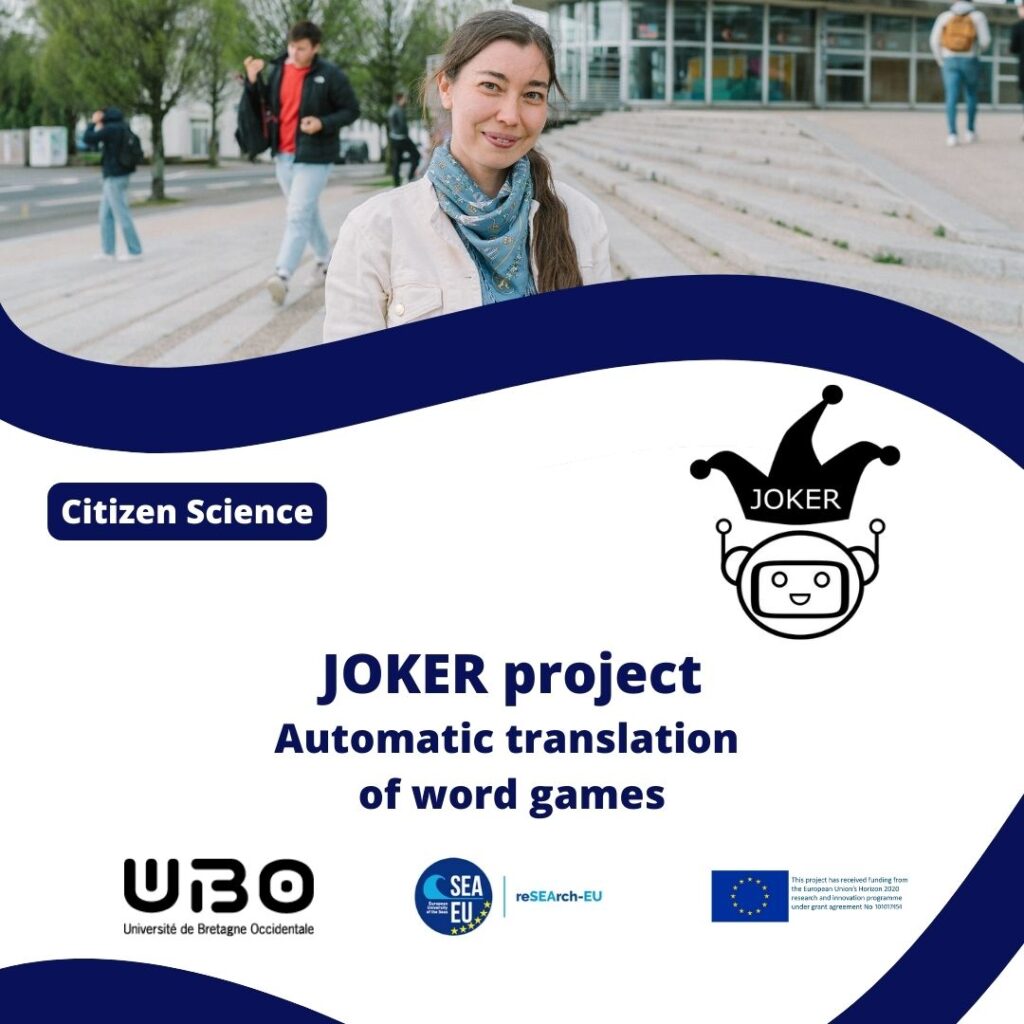
This project is developed by Liana Ermakova. Liana is a member off the HCTI laboratory, Heritage and Creation in Text and Image (UR4249) which was created in 2008. It is composed of a team of 50 full members, in Brest and Lorient, about forty doctoral students and twenty associates, researchers in the fields of Arts, Humanities and Languages, who explore the ways in which cultures are inherited and created, based on various corpora, textual, digital, iconographic and filmic, from Antiquity to the 21st century. The laboratory offers various types of expertise in the fields of text and image analysis and processing, such as caricature, with the publication of the journal Ridiculosa, sociability in France and England during the Age of Enlightenment, kitsch, studies of series and cinema, and discourse in the media.
The JOKER project is funded by the European alliance SEA EU and by the Maison des Sciences de l’Homme en Bretagne (MSHB). Ultimately, the Joker project will make machine translators more efficient in detecting word games and faster in translating them. These new functionalities could, for example, be applied to live subtitling.
More information about Joker project go to www.joker-project.com/clef-2022/EN/project

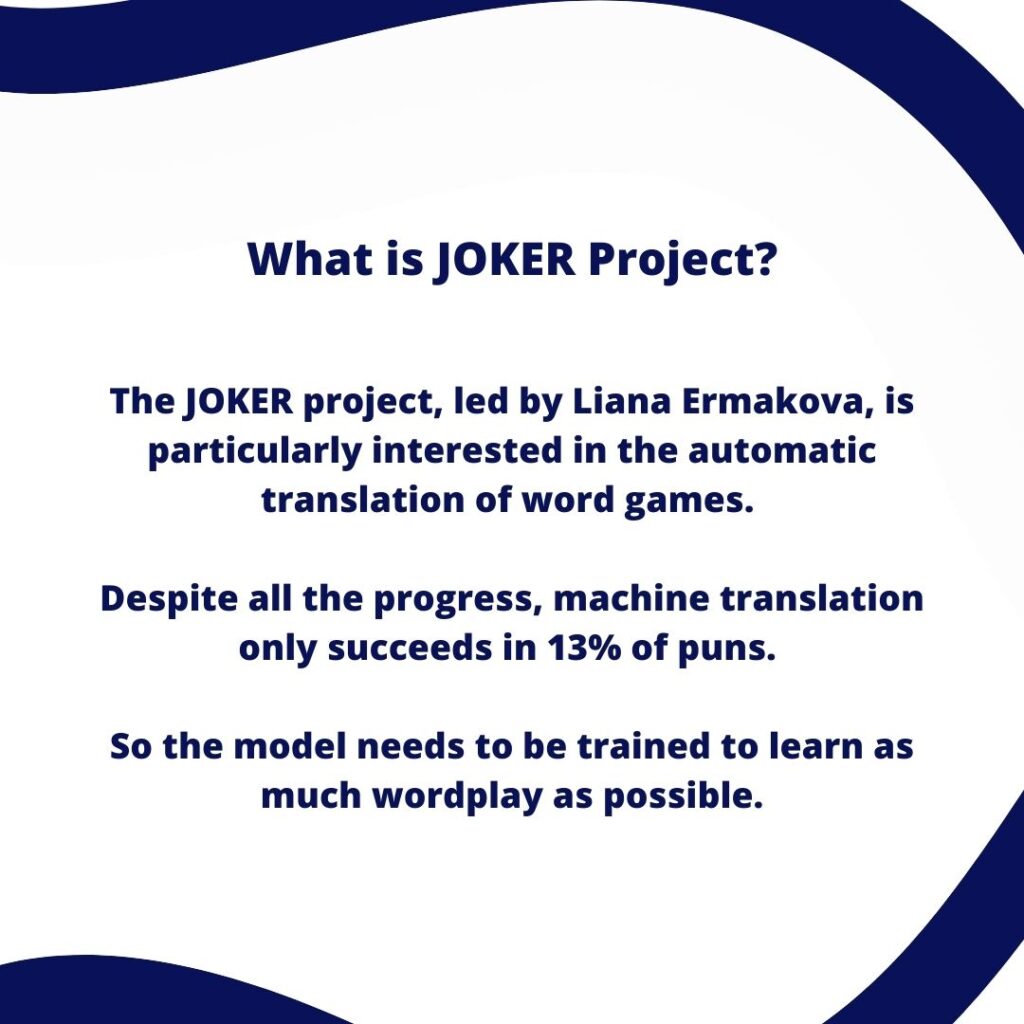

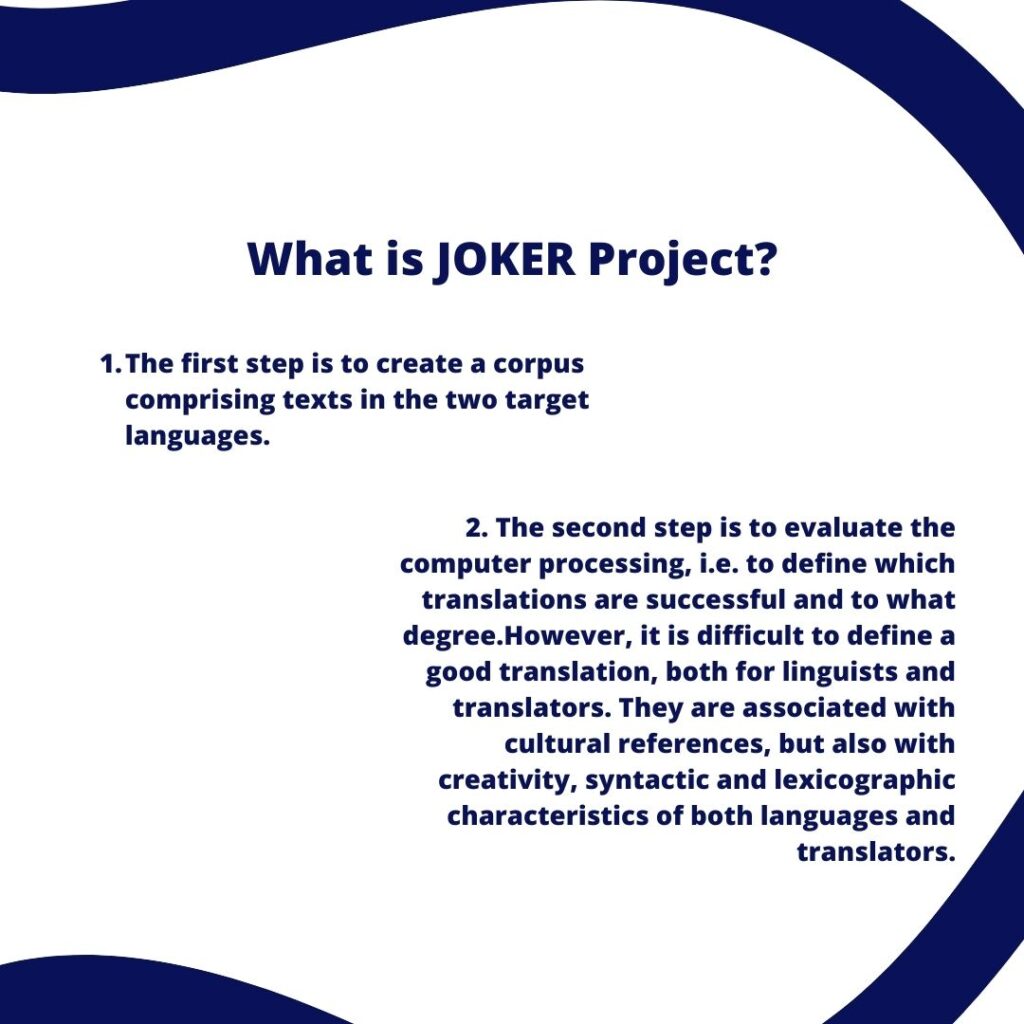

BIOCALETA PROJECT – Help us discover new species, understand their distribution and abundance

This project is developed within the University of Cádiz in which citizen participation is essential to achieve the identification of the species and to involve the citizen.
Specifically, citizen can takes photos of the species in the study area and share it by Natusfera platform.






COASTSNAP PROJECT – Community beach monitoring
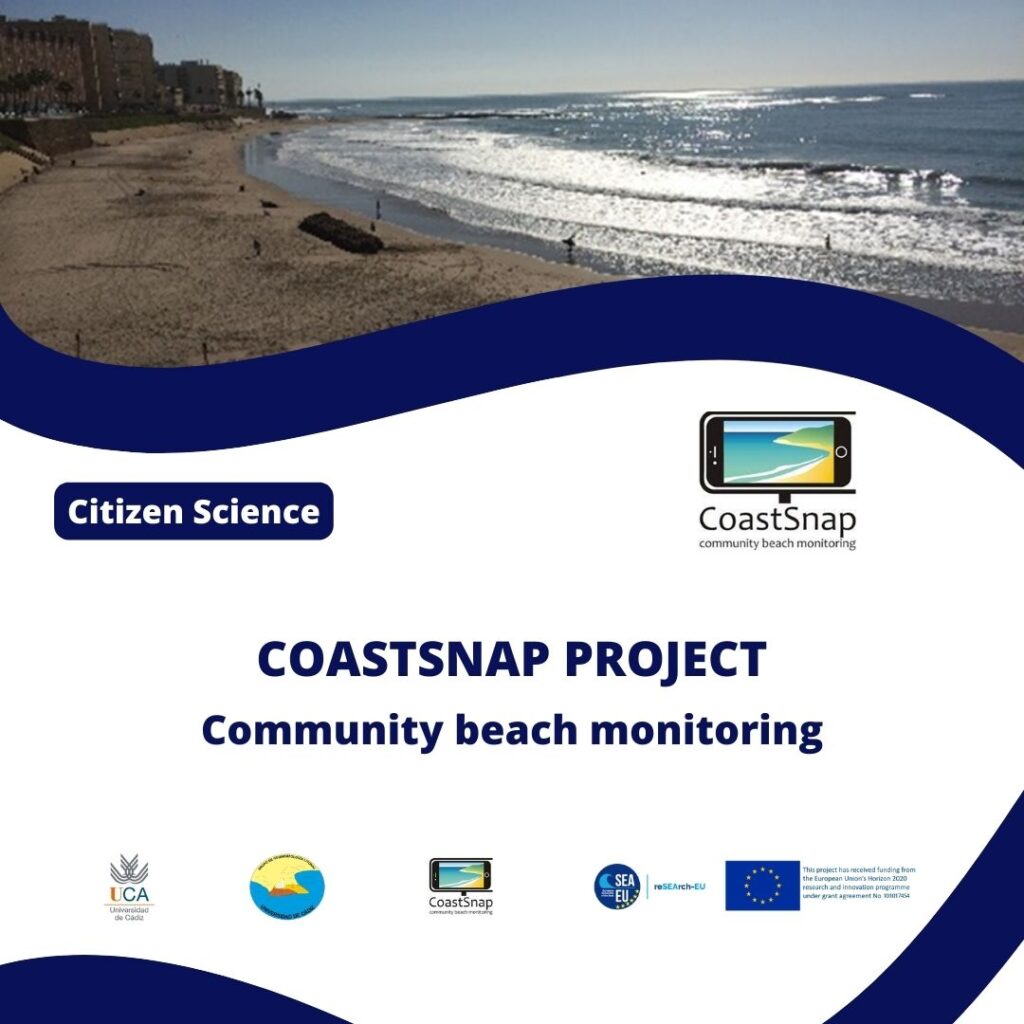
This project is developed within the University of Cádiz in which citizen participation is essential to achieve results for the project.
Specifically, citizen can takes photos of the beach in the CoastSnap points and share it in the social media with the hashtag #coastsnapcadiz and the project team will process to tracking the shoreline
You already know about this project and more information are available in coastsnap.com or @coastsnapcadiz The Principal Researcher of the project are: Laura del Río, Javier Benavente @javitopin and Theocharis Plomaritis.







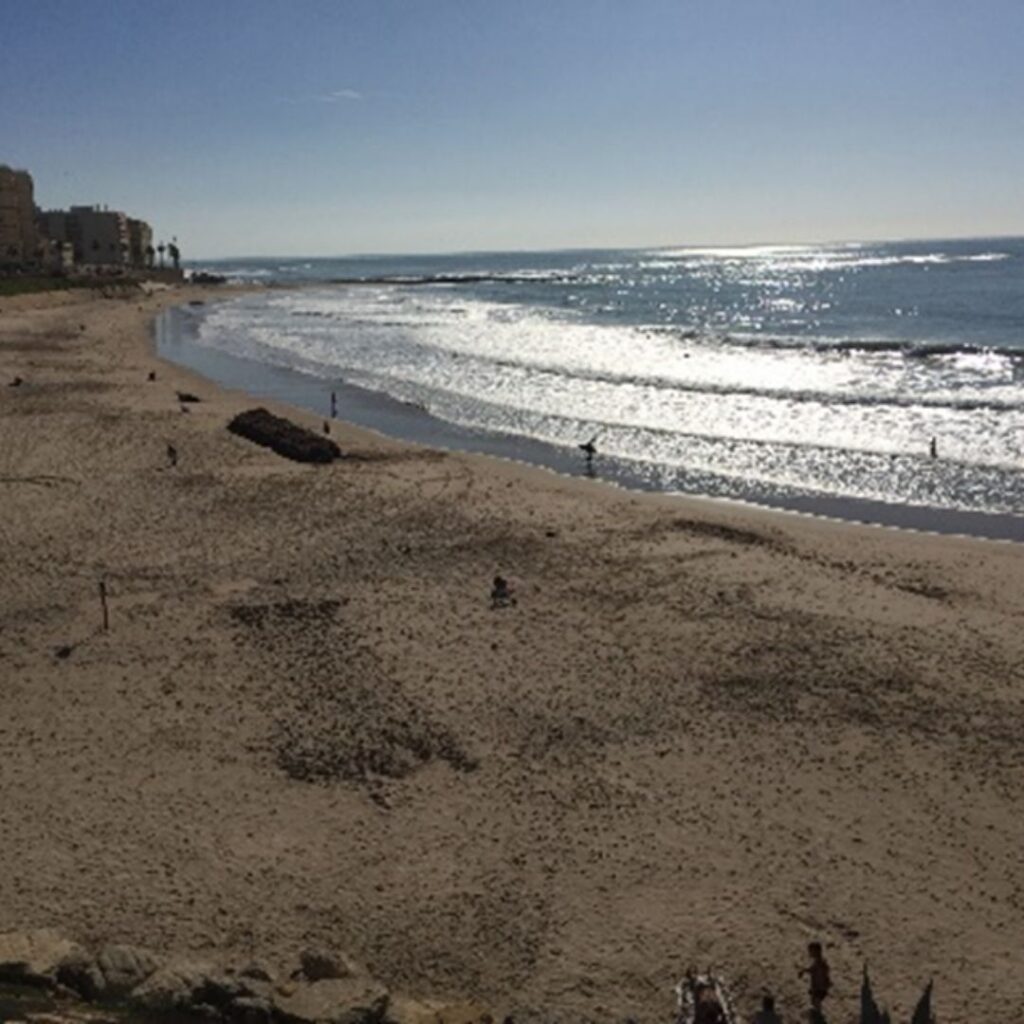
InLIFE AGING Project – Your lifestyle determine your physical and cognitive state

This project is developed within the University of Cádiz in which citizen participation is essential to achieve results for the project.
Specifically, they contribute to create a database with their healthy date and in exchange the person obtains a report of results and personalized recommendations for its health.
You already know about this project and more information are available in inibica.es or @inibica_iis

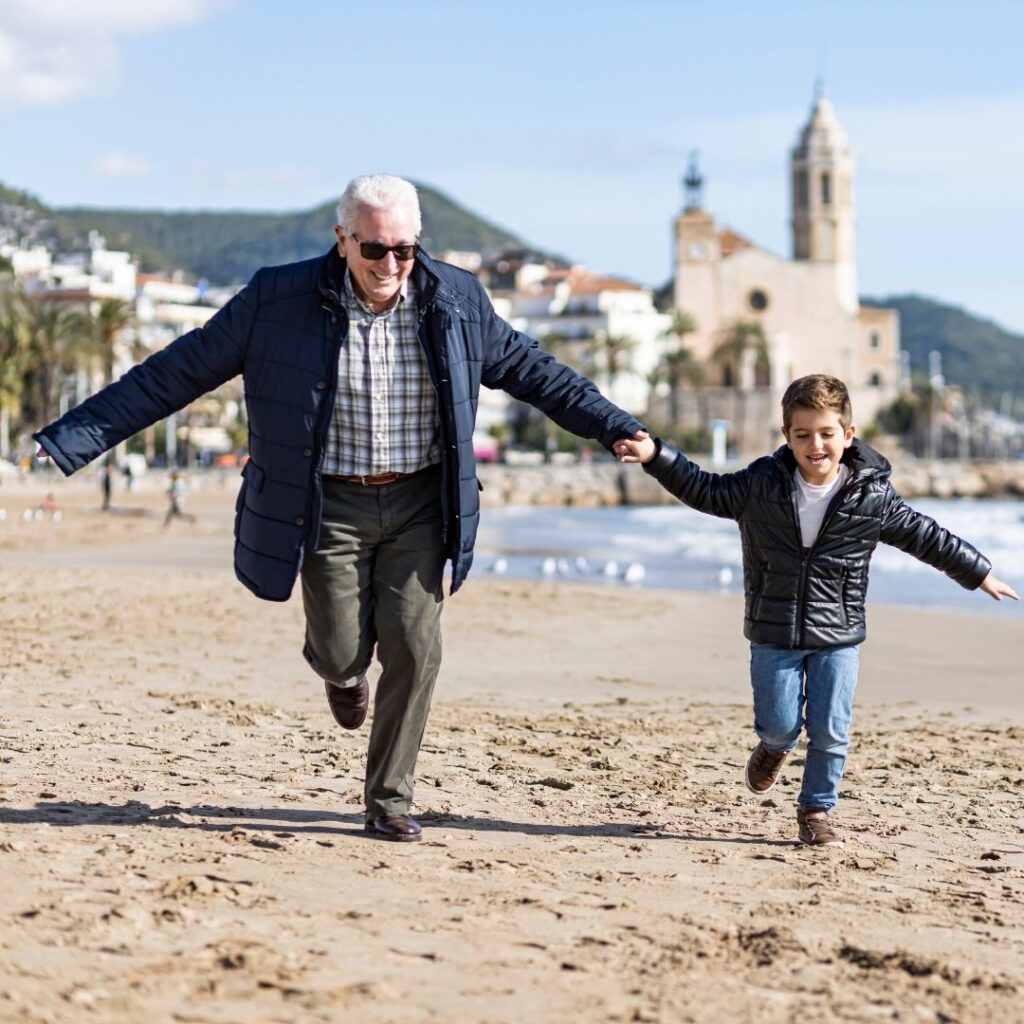
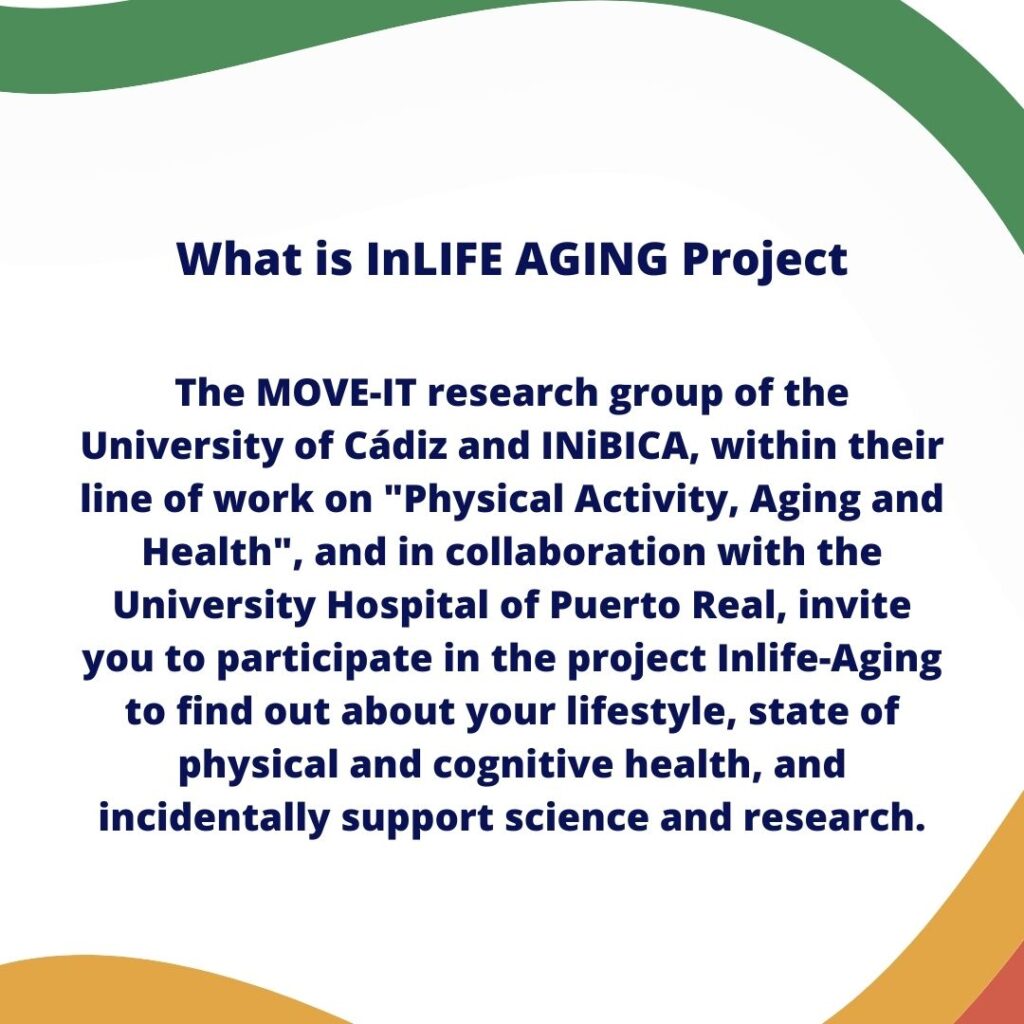
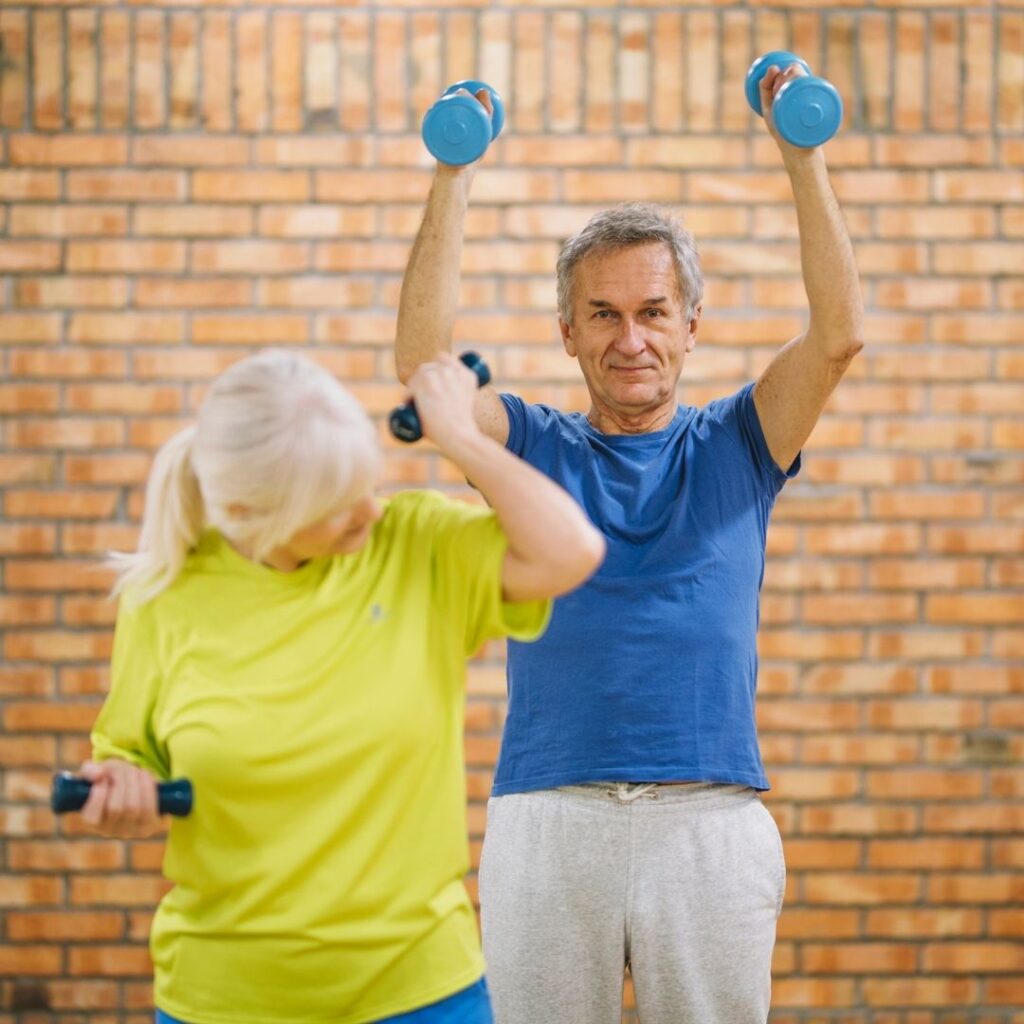
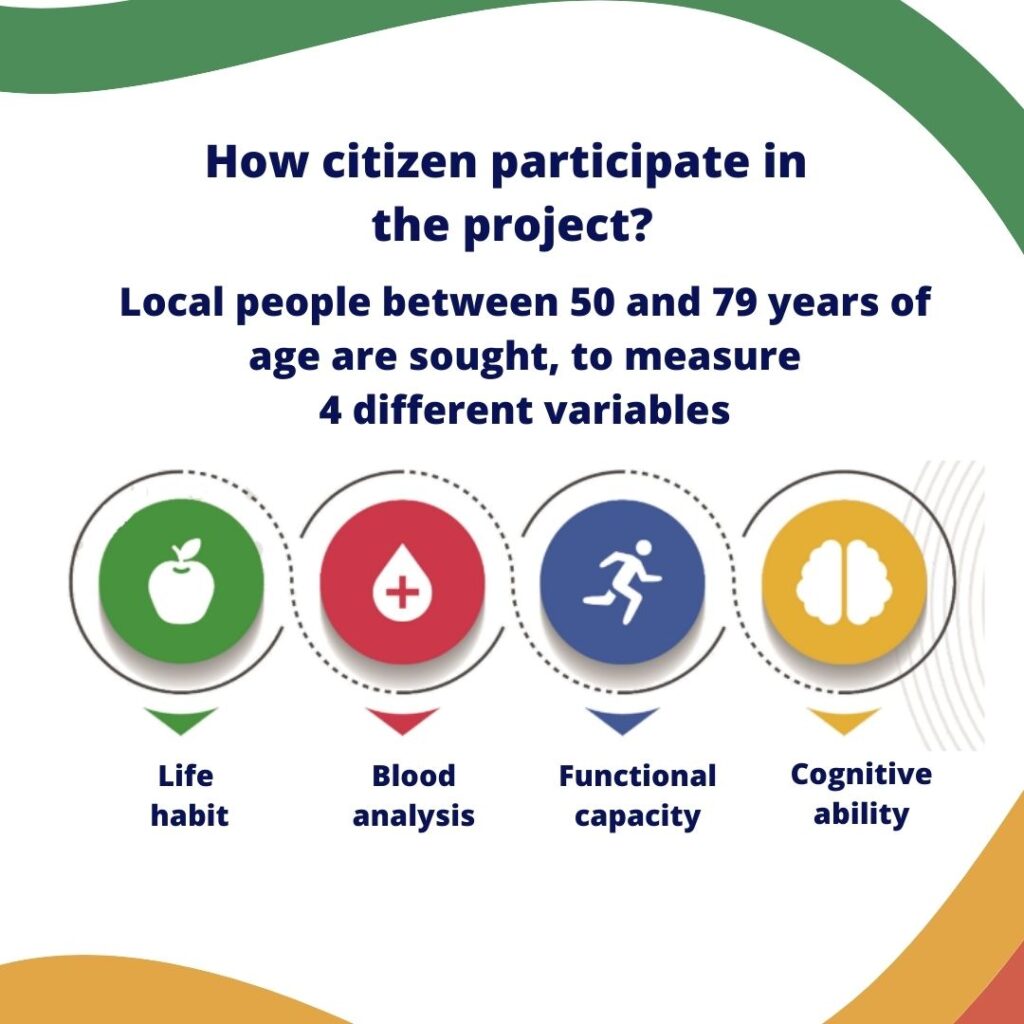



Adjust: Financing Adaptation to Climate Change in the Global South. Investigating a Fair and Practical Distribution of Scarce Resources

This project is developed by Prof Baatz as a head of the project at Kiel University @kieluni and is head of the working group Climate Ethics, Sustainability and Global Justice.
This project is divided into five work packages (WP) in order to address different proposed questions. One of them (WP1) is directly related “transdisciplinary research”.
This is another example of why stakeholders implications are more and more relevant in investigation projects of diverse topics.
For more information about Adjust project go to www.adjust-climate.org









GBE Litoral – Sustainability on the Andalusian coast – Ecosystem-based management for human well-being

This project is developed within the University of Cádiz in which citizen participation is essential to achieve results for the project.
Specifically, they have created a survey for all people who live or have visited the Andalusian coast and need their opinion on ecosystem services to create a management tool for local managers.
You already know that you can participate online in the survey and any questions you can ask us here or directly to the project researchers on their account @gbelitoral or in https://gbelitoral.es/









